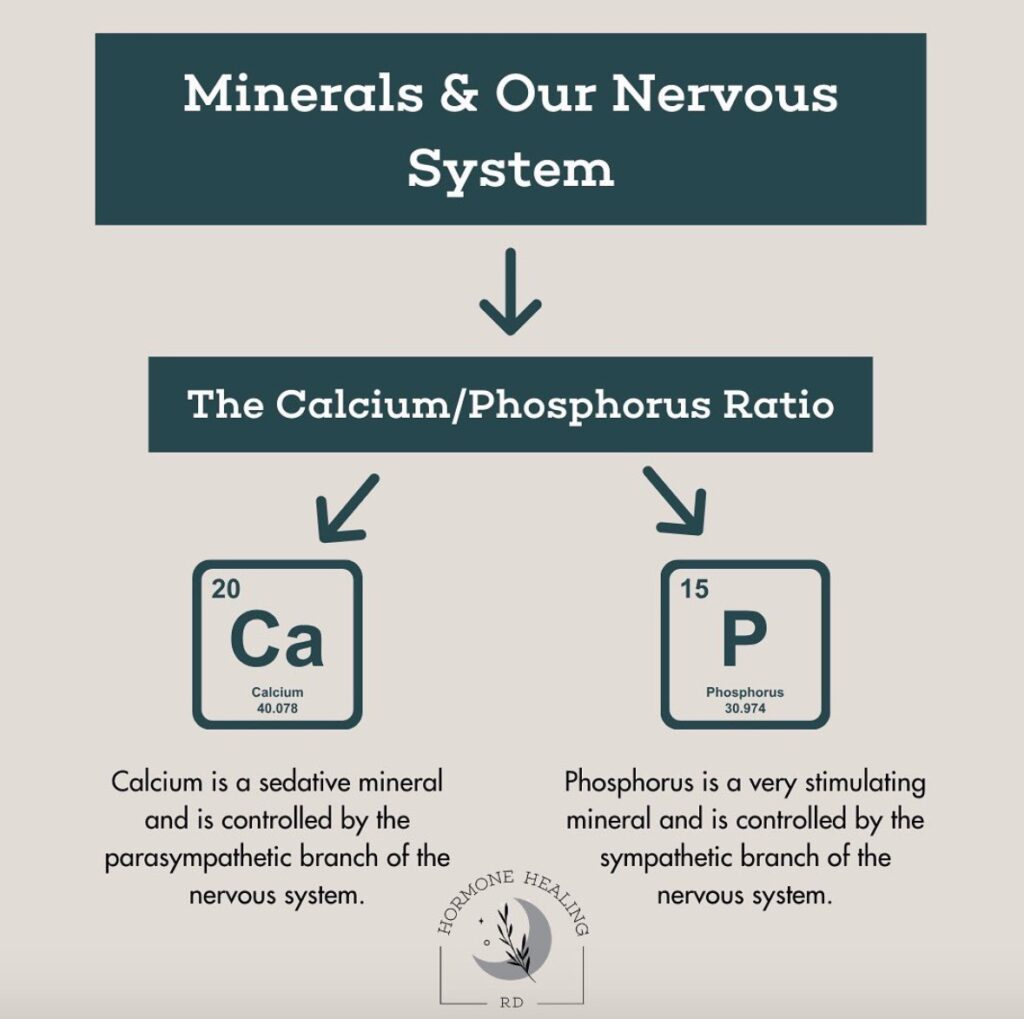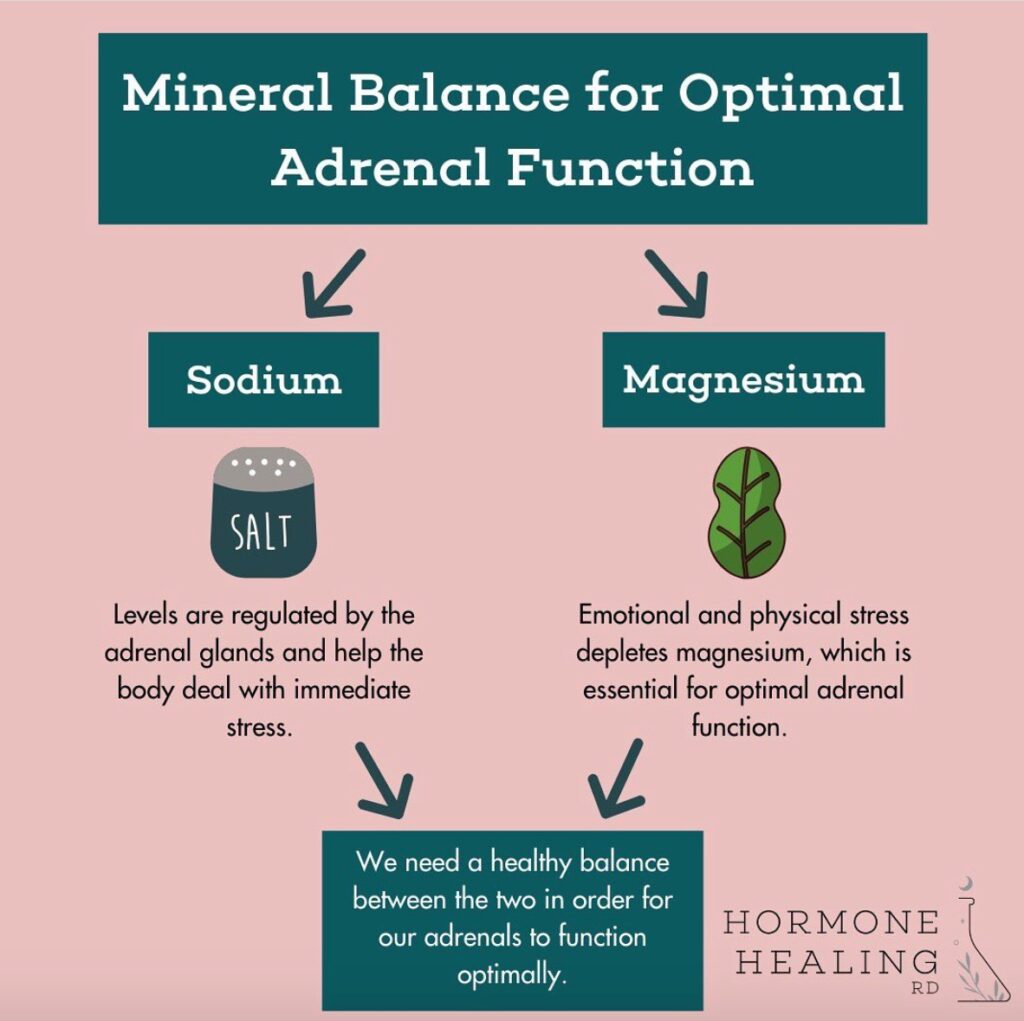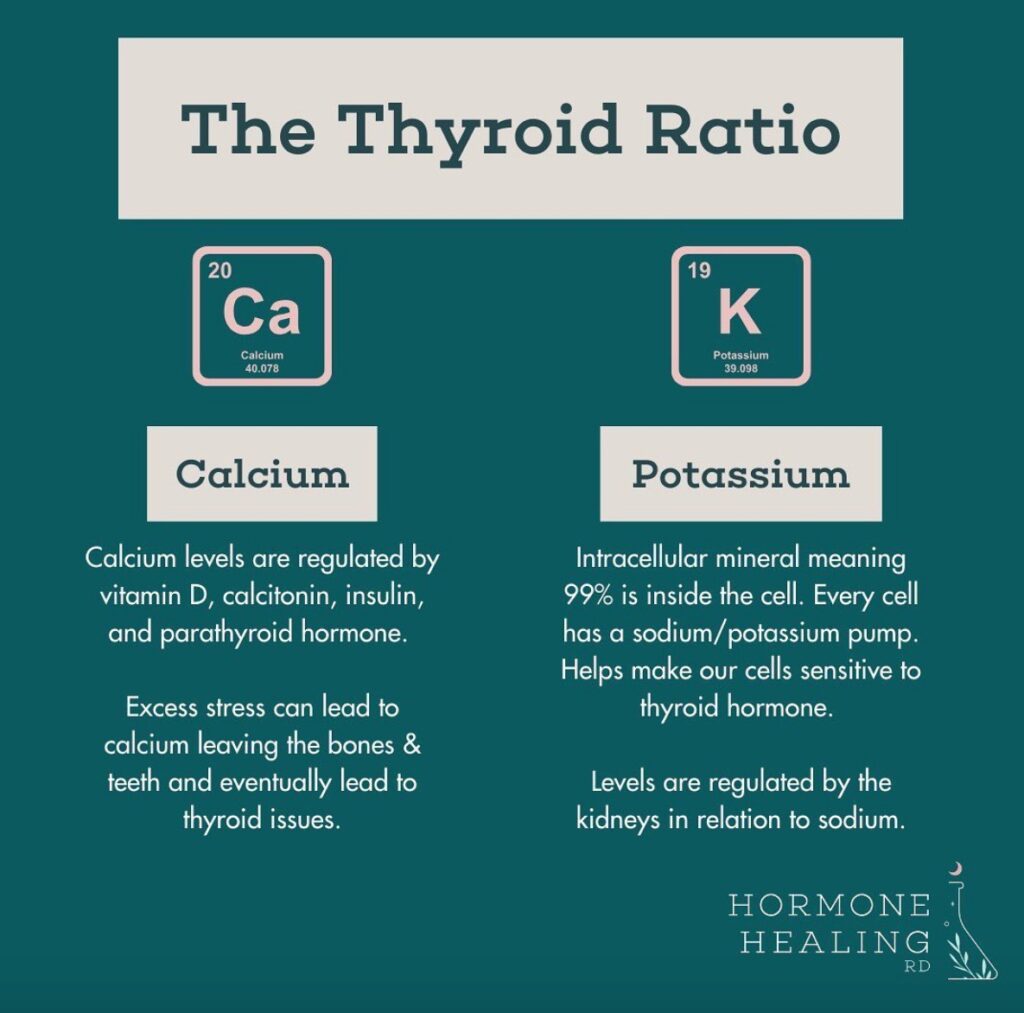In my most recent blog, Minerals Part-1: Mechanics, I introduced the first level of minerals: calcium, magnesium, sodium, and potassium. I detailed how each of these minerals plays a role in your body and why they are essential to your health. If you missed it, be sure to check it out. In this post, part-2 of the series, I will focus on how some of our most essential minerals interact with each other.
What effects do minerals have on our nervous system?
I’m starting with the nervous system because it has such a significant impact on our hormones. Typically, you hear me talking about the nervous system as it relates to stress. When the body is in the sympathetic nervous system (AKA stressed-out state), the body loses calcium and magnesium. I mentioned the importance of both of these in part-1 of this series. Phosphorus typically increases and can lead to difficulty sleeping and anxiety if we are in this state for too long. When the body is in the parasympathetic or relaxed state, we retain more calcium and magnesium while losing sodium, phosphorus, and potassium, which leads to deficiencies. When we get stuck in the parasympathetic state due to too much stress, we tend to feel fatigued, develop low blood pressure and low body temperatures. All of this is caused by low energy production and a slowed thyroid function. The goal is for these two minerals to be balanced so that our nervous systems can be balanced.

How do minerals affect your adrenals?
Have you ever wondered why you feel better after you add salt to your water? Have you ever craved something salty and had to indulge? It could be related to your adrenals and mineral balance. Sodium is regulated by the adrenal glands and is required to respond to an immediate stressor correctly. Most of us need more sodium because we are either deficient or are losing a lot of it. For this reason, I am obsessed with adding sea salt to my water in the morning and at night.
Magnesium is not only crucial for helping the body deal with stress, but also for recovering from it. Magnesium-rich foods include spinach, leafy greens, banana, avocado, and plantains. You can also get magnesium from Epsom salt baths or magnesium oil spray. When these minerals are out of balance, it can lead to dysfunction in the body’s adrenal glands and the ability to respond to/handle stress.

How do minerals affect the thyroid?
I went into great detail about the role minerals play in thyroid health in my thyroid series blogs. The information is so critical that I have to re-emphasize it. One of the main reasons I myself got into mineral testing was because I had all the symptoms of thyroid dysfunction; however, my lab results were only slightly out of range. That left me with no help from my doctor and confusion around how to restore proper thyroid function. I hear similar stories from my clients when they decide to take their thyroid health into their own hands. They seek out my services after they do not receive any support from their doctor. In my case, I eventually learned about how copper and adrenal health can impact thyroid function, which led me to mineral testing.
Calcium and potassium are the most important minerals for assessing thyroid function. They both have been changers for helping me to improve my own.
Calcium & Your Thyroid. 95% of calcium is in the bones and teeth. When calcium starts to move out of the bones and teeth, it causes problems. The main issue is that calcium binds to iodine receptors and negatively impacts thyroid hormone use. On many hair tissue mineral analysis (HTMA) tests, I see high levels of calcium. That means that calcium is not where it should be, which is in the bones in teeth. Instead, it leaves the body through the hair–showing us that it is likely binding to iodine receptors and slowing down thyroid function. Stress is the most significant contributing factor to calcium, leaving the body. How would you know if your calcium levels should be checked? The signs/symptoms of high calcium include:
Potassium & Your Thyroid. Potassium is another piece of the thyroid function puzzle. Potassium has many important jobs in the body. It regulates blood pressure, maintains fluid balance and pH of the body, impacts nerve conduction in the heart, and dilates arteries. Potassium also has a huge impact on thyroid health because it sensitizes our cells to thyroid hormone. When we do not have enough potassium, it can lead to impaired thyroid function. As sodium levels increase within the body, the potassium levels decrease. What does it look like to have low potassium? The signs/symptoms of low potassium include:

Having balanced minerals is important for your overall health and the health of your thyroid. Calcium and potassium, along with magnesium and sodium, are key influencers of thyroid function. If you are ready to take charge of your thyroid health and want to check your mineral balance, consider ordering your hair mineral test today! The easiest way to do this is through my Master Your Minerals online course, in which we teach you how to interpret your own HTMA and build a hormone-healing protocol based on your unique results.
Photo by Sarah Cervantes on Unsplash
